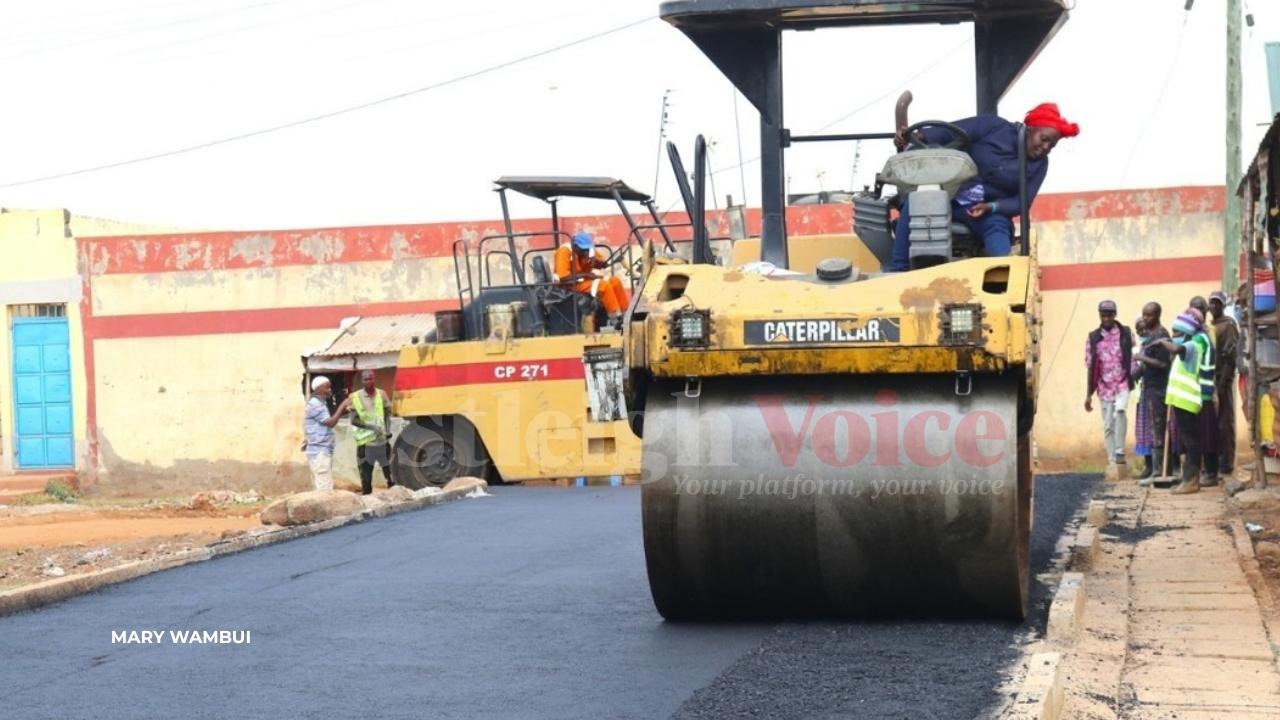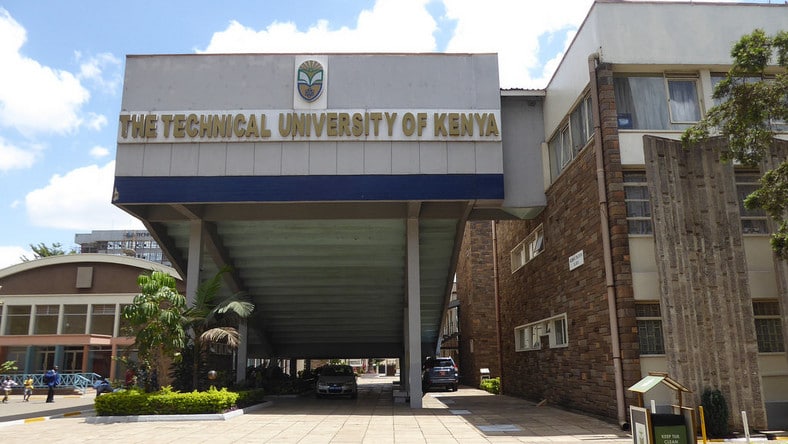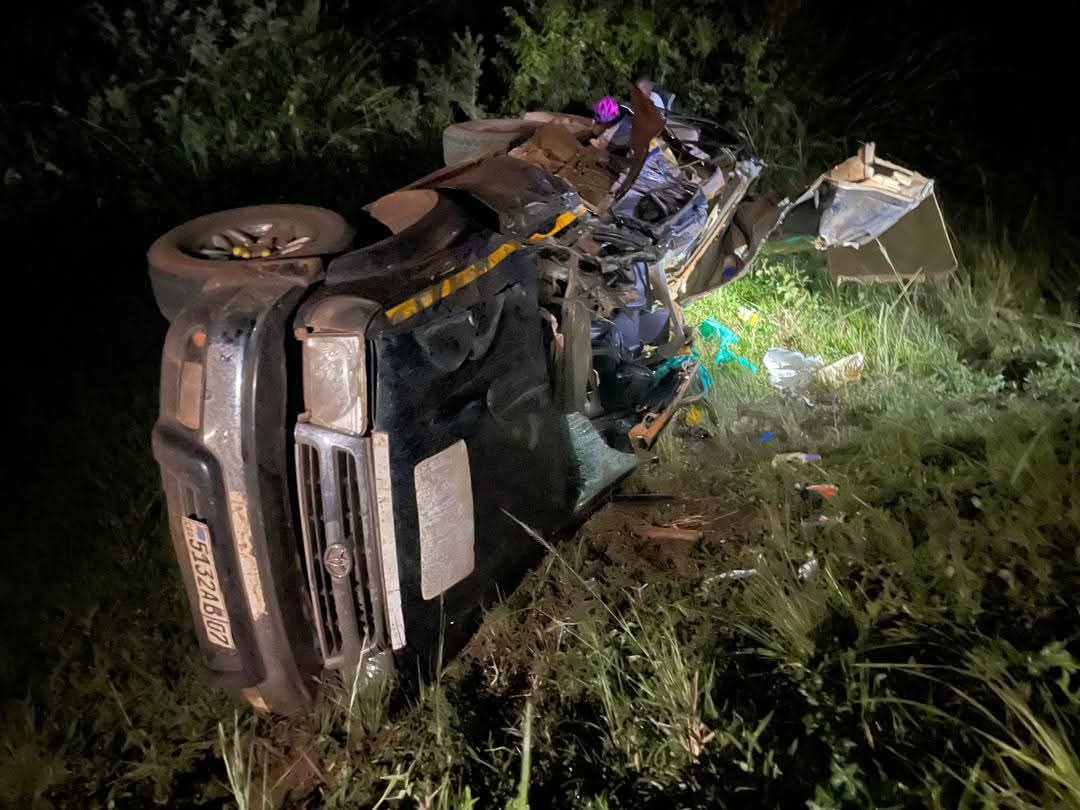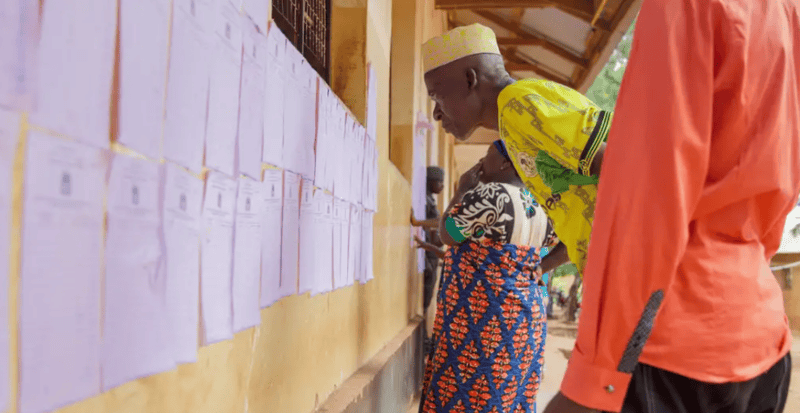World Ocean Day: Youth lead Diani beach cleanup in fight against plastic pollution
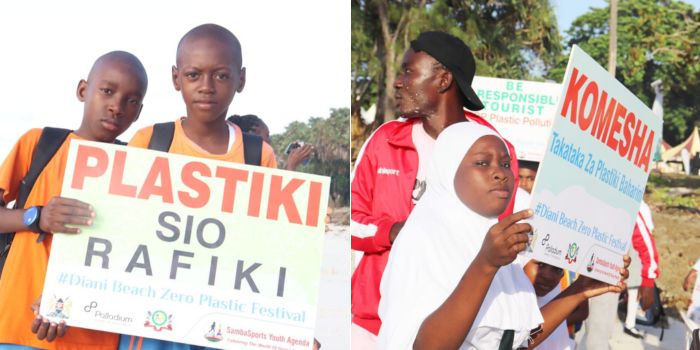
The Samba Sports Youth Agenda, whose members include fishermen, decried a dwindling income as the plastics interfere with fish breeding grounds, making them migrate in search of cleaner and safer locations
A youth group in Kwale County has taken it upon itself to sensitise the community on the effects of disposing of plastic waste in the ocean, capitalising on World Ocean Day, which was marked on Saturday.
The Samba Sports Youth Agenda, whose members include fishermen, decried a dwindling income as the plastics interfere with fish breeding grounds, making them migrate in search of cleaner and safer locations
More To Read
- How to harness the ocean for prosperity: Funding African innovations can unlock the blue economy
- Ethiopian parliament passes Bill banning single-use plastic bags
- Lamu youths turn Lake Kenyatta into party venue, leave it littered with trash
- UN talks on plastics pollution treaty push for breakthrough as deadline looms
- Divisions on curbing plastic waste persist as UN treaty talks begin
- Lamu County residents harness wildlife, beaches to boost tourism
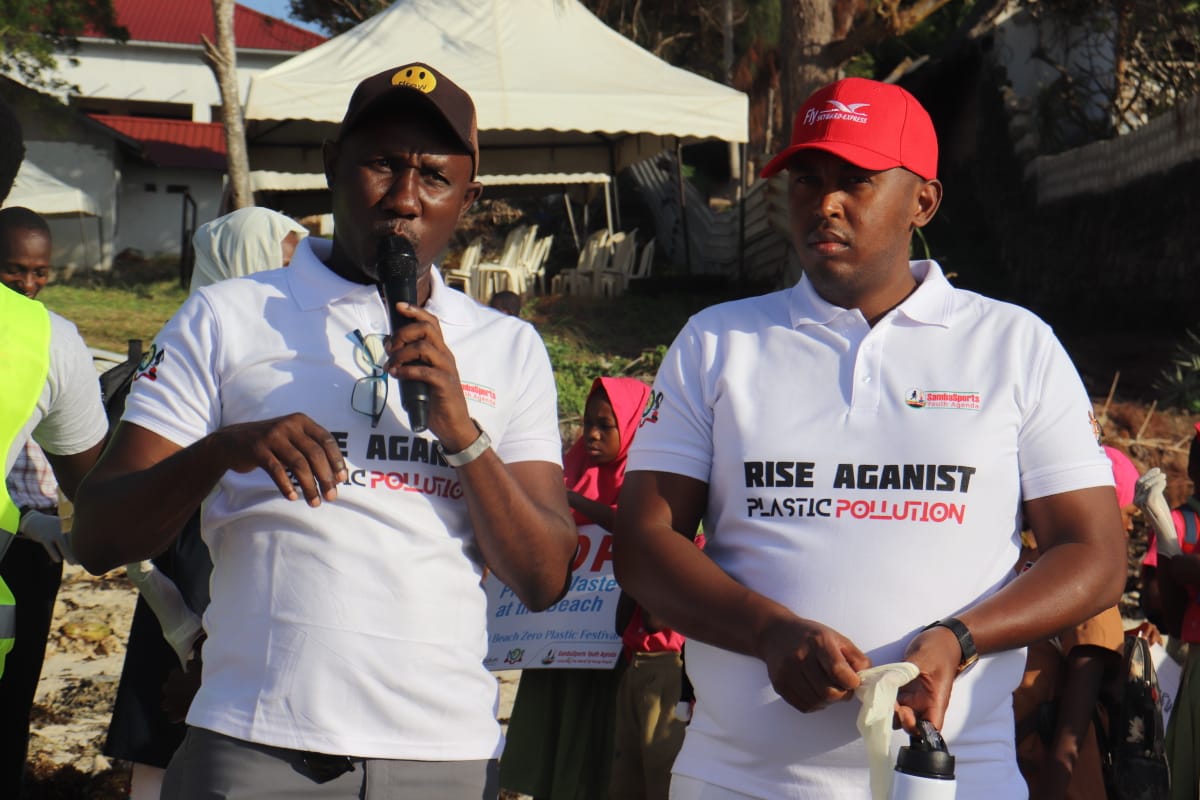 Members of the Samba Sports Youth Agenda address participants in the Diani Beach Zero Plastic Festival, as World Ocean Day is marked, in Diani, Kwale County, on June 8, 2024. (Photo: Mishi Gongo/EV)
Members of the Samba Sports Youth Agenda address participants in the Diani Beach Zero Plastic Festival, as World Ocean Day is marked, in Diani, Kwale County, on June 8, 2024. (Photo: Mishi Gongo/EV)
Speaking in Diani on Saturday, during the Diani Beach Zero Plastic Festival as the world marked World Ocean Day, members said they took up the initiative to ensure zero plastic on the shores of Diani Beach.
The event saw representatives from the Kenya Wildlife Services (KWS), schoolchildren, and other community members collect trash from three kilometres along the Diani shores.
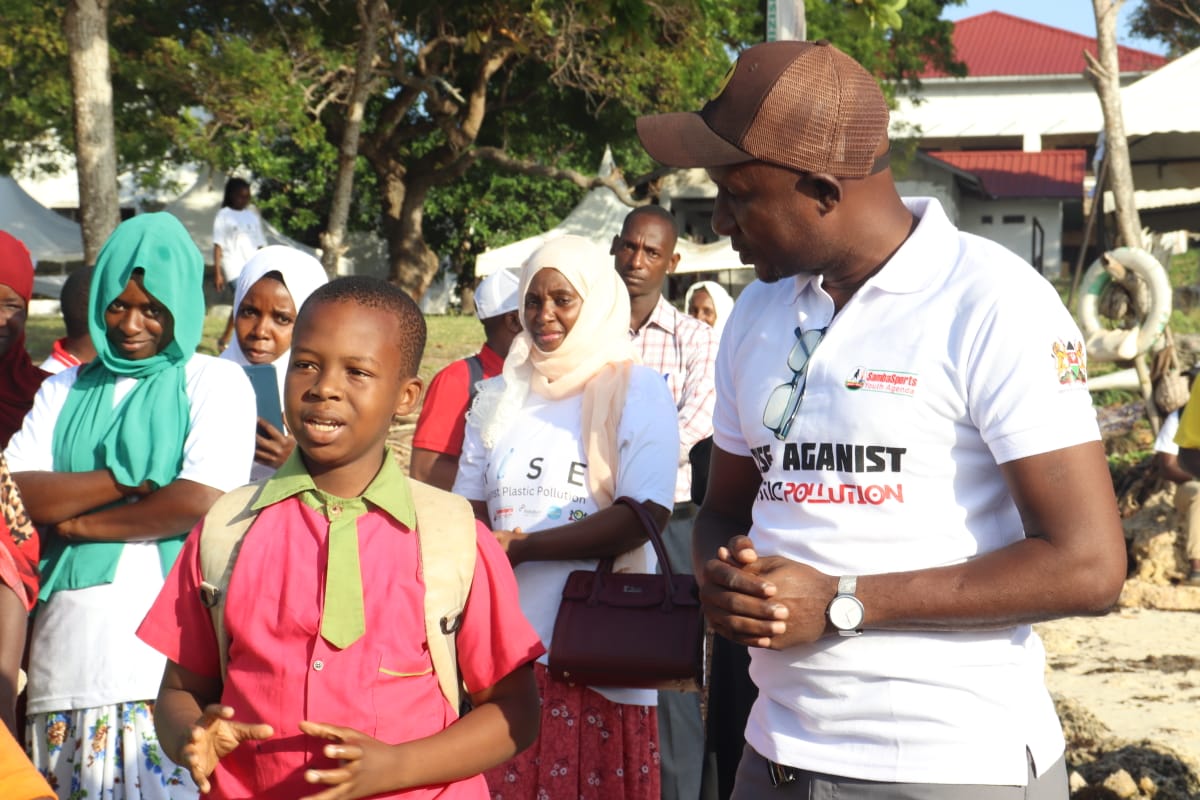 A student addresses participants in the Diani Beach Zero Plastic Festival, as World Ocean Day is marked, in Diani, Kwale County, on June 8, 2024. (Photo: Mishi Gongo/EV)
A student addresses participants in the Diani Beach Zero Plastic Festival, as World Ocean Day is marked, in Diani, Kwale County, on June 8, 2024. (Photo: Mishi Gongo/EV)
Samba Executive Director Mohammed Mwachausa said the massive plastic that is disposed of on the shore and the waste that washes ashore on the island, end up in the mangrove forest on various beaches in Diani, causing the deaths of many fish and turtles.
"This year we wanted to do something different after realising that cleaning would not have a big impact unless the community understood the effects of disposing of trash at the beach," he said, adding that emphasis was on women, children, and business owners who regularly go to the beaches.
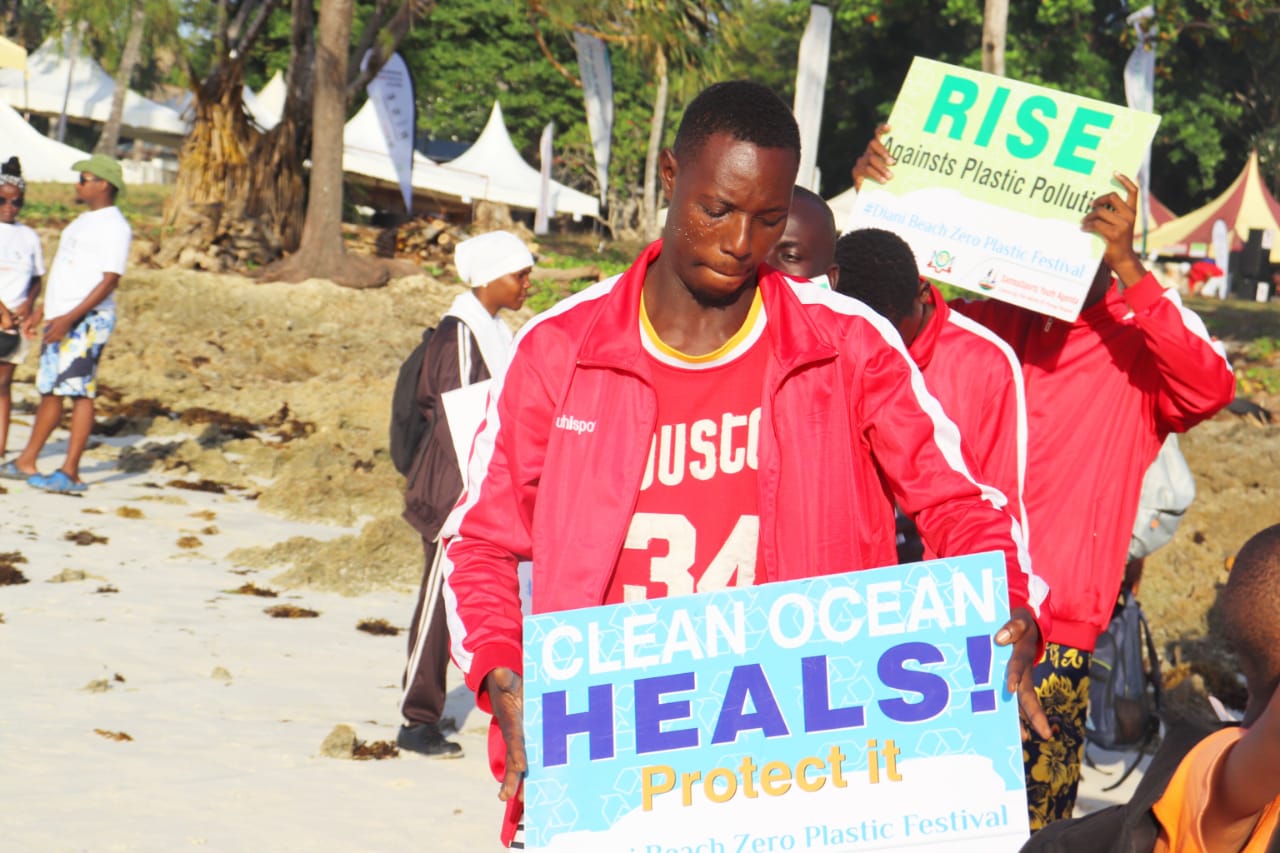 Members of the public hold up pro-conservation signs during the Diani Beach Zero Plastic Festival, as World Ocean Day is marked, in Diani, Kwale County, on June 8, 2024. (Photo: Mishi Gongo/EV)
Members of the public hold up pro-conservation signs during the Diani Beach Zero Plastic Festival, as World Ocean Day is marked, in Diani, Kwale County, on June 8, 2024. (Photo: Mishi Gongo/EV)
Noting that they have witnessed the improper disposal of plastic waste into the ocean, Mohammed said they were worried that Diani town, with its beautiful white sand beaches, would lose its glory.
In 2023, the World Travel Awards (WTA) ranked Diani Africa's leading tourist destination for the 11th successive time, noting that it consistently attracts both local and international tourists.
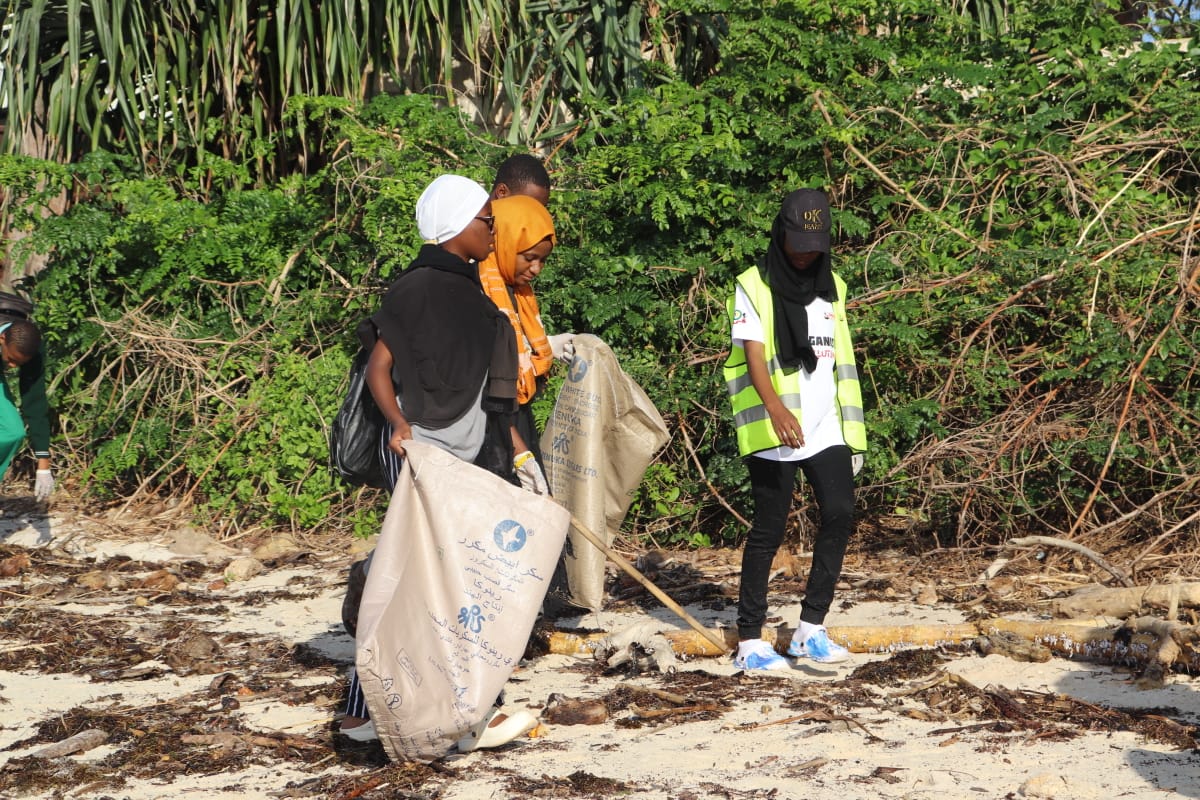 Members of the public take part in the Diani Beach Zero Plastic Festival, as World Ocean Day is marked, in Diani, Kwale County, on June 8, 2024. (Photo: Mishi Gongo/EV)
Members of the public take part in the Diani Beach Zero Plastic Festival, as World Ocean Day is marked, in Diani, Kwale County, on June 8, 2024. (Photo: Mishi Gongo/EV)
According to Diani Hospitality Association Chairperson Mohammed Hersi, stakeholders in the tourism sector, the county government, and the community need to work together to maintain the glory of Diani, with the risk being a decline in tourist numbers.
"When tourists visit this region, they come to see the white sand beaches and swim with the dolphins, but the plastics are causing the dolphins to migrate in search of safer places," he said.
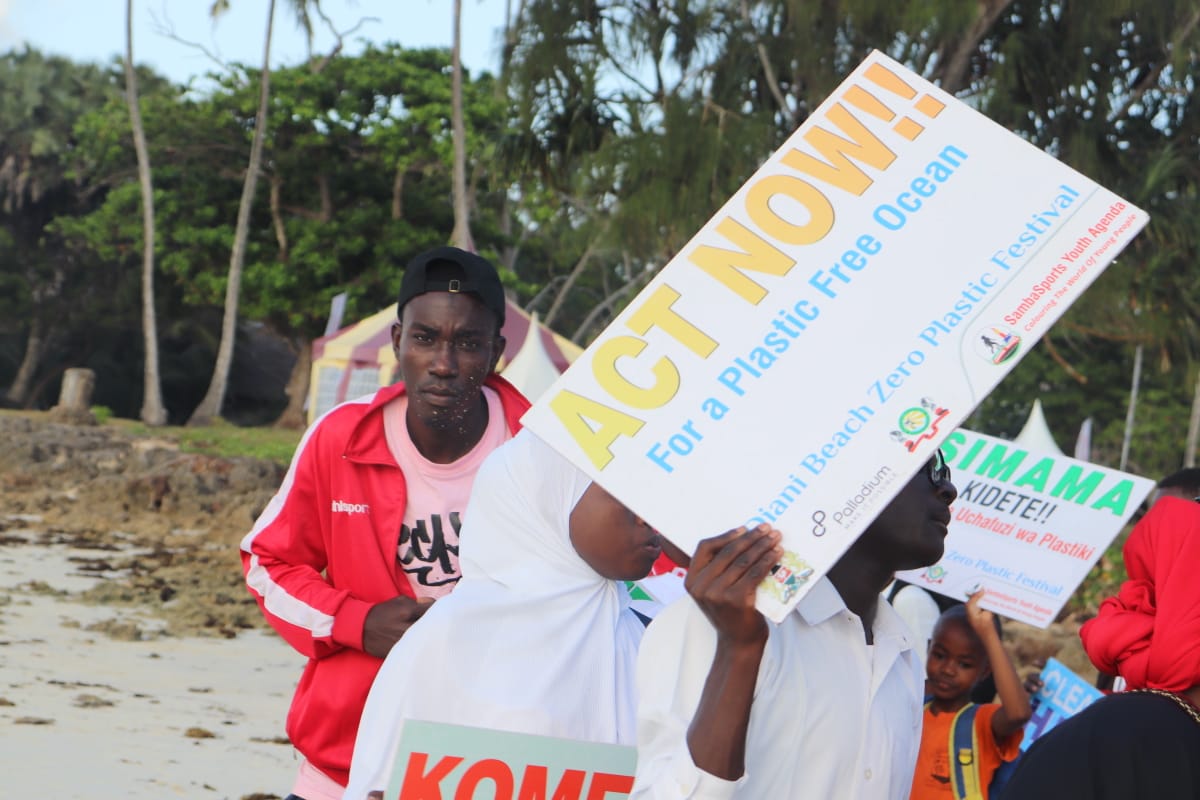 A member of the public displays a pro-conservation sign during the Diani Beach Zero Plastic Festival, as World Ocean Day is marked, in Diani, Kwale County, on June 8, 2024. (Photo: Mishi Gongo/EV)
A member of the public displays a pro-conservation sign during the Diani Beach Zero Plastic Festival, as World Ocean Day is marked, in Diani, Kwale County, on June 8, 2024. (Photo: Mishi Gongo/EV)
Mohammed, however, applauded the move by the community, saying Kwale had taken key actions to control the dumping of plastics in the ocean.
"We have so many groups volunteering in beach cleaning exercises, an effort that has improved our beaches. Plastic pollution is not as bad as it was before, he said.
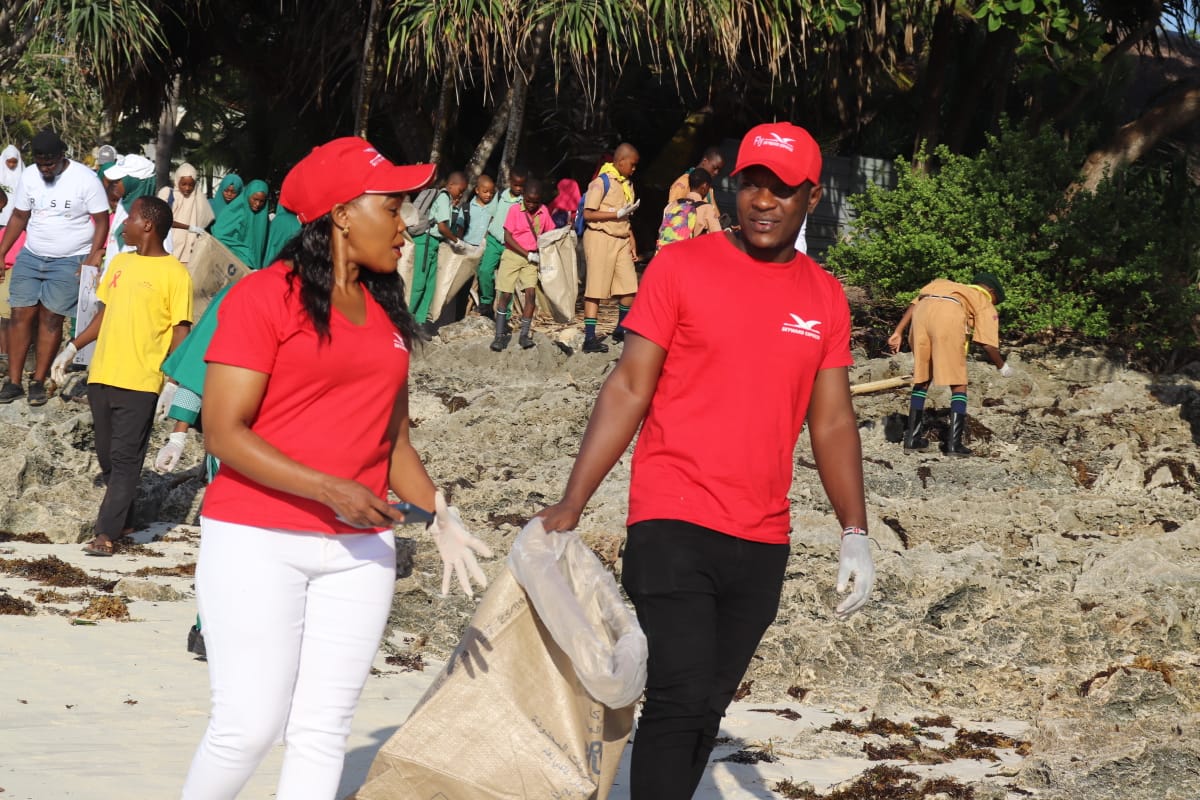 Members of the public take part in the Diani Beach Zero Plastic Festival, as World Ocean Day is marked, in Diani, Kwale County, on June 8, 2024. (Photo: Mishi Gongo/EV)
Members of the public take part in the Diani Beach Zero Plastic Festival, as World Ocean Day is marked, in Diani, Kwale County, on June 8, 2024. (Photo: Mishi Gongo/EV)
Kwale is home to more than 400 fish species and is a breeding ground for turtles, but this natural habitat continues to face catastrophic destruction due to heavy plastic waste in the mangrove forest.
Mohammed noted that dolphins, whales, and turtles fear and are affected by dirt, while plastics bleach and kill corals.
"With the plastic, fishing and tourism will reduce, because no tourist will come to the island with this magnitude of waste as they want to watch dolphins, corals, and other fish."
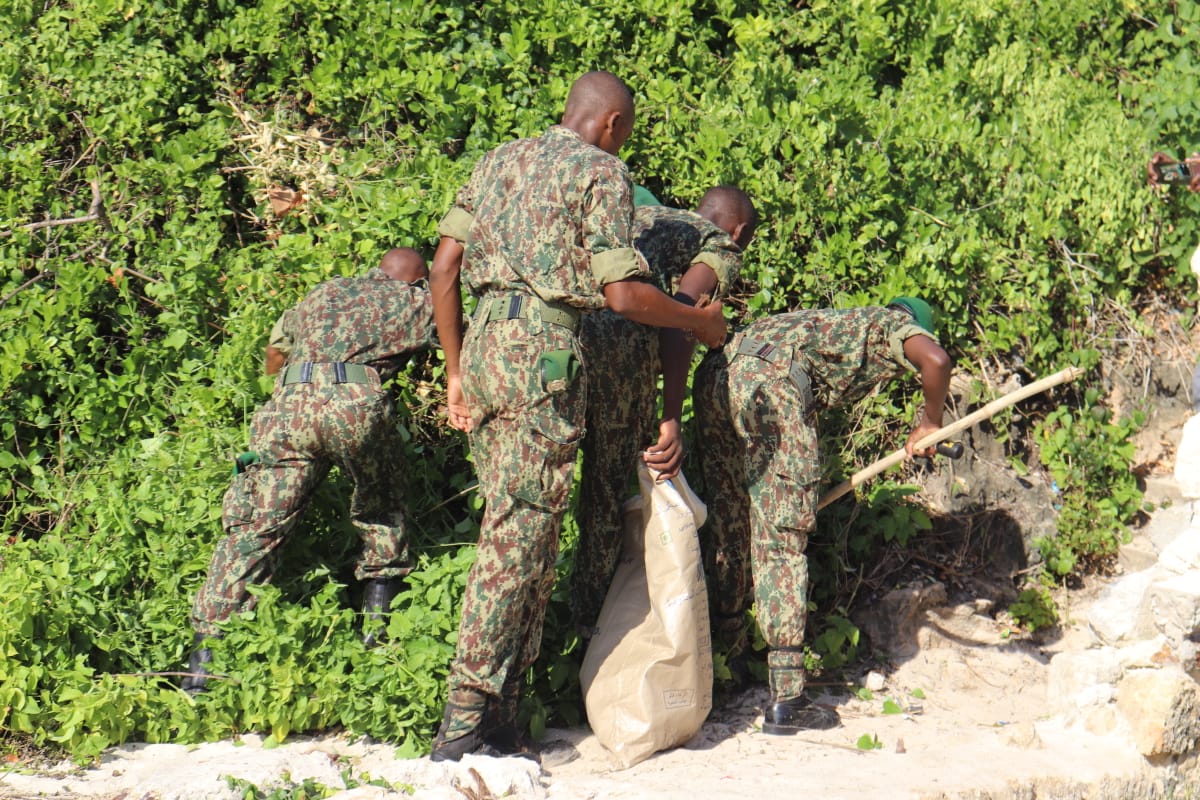 Members of the National Youth Service (NYS) take part in the Diani Beach Zero Plastic Festival, as World Ocean Day is marked, in Diani, Kwale County, on June 8, 2024. (Photo: Mishi Gongo/EV)
Members of the National Youth Service (NYS) take part in the Diani Beach Zero Plastic Festival, as World Ocean Day is marked, in Diani, Kwale County, on June 8, 2024. (Photo: Mishi Gongo/EV)
Omar Nduvyaa, a fisherman, lamented the continuously dwindling fish stock.
Omar said that in the 1990s, they would catch up to 50 kg of fish, but that this quantity has been reduced to the rare 10 kg.
"As a teenager, my father and I would always struggle to carry our catch to the shore, but now we hardly get anything," he said.
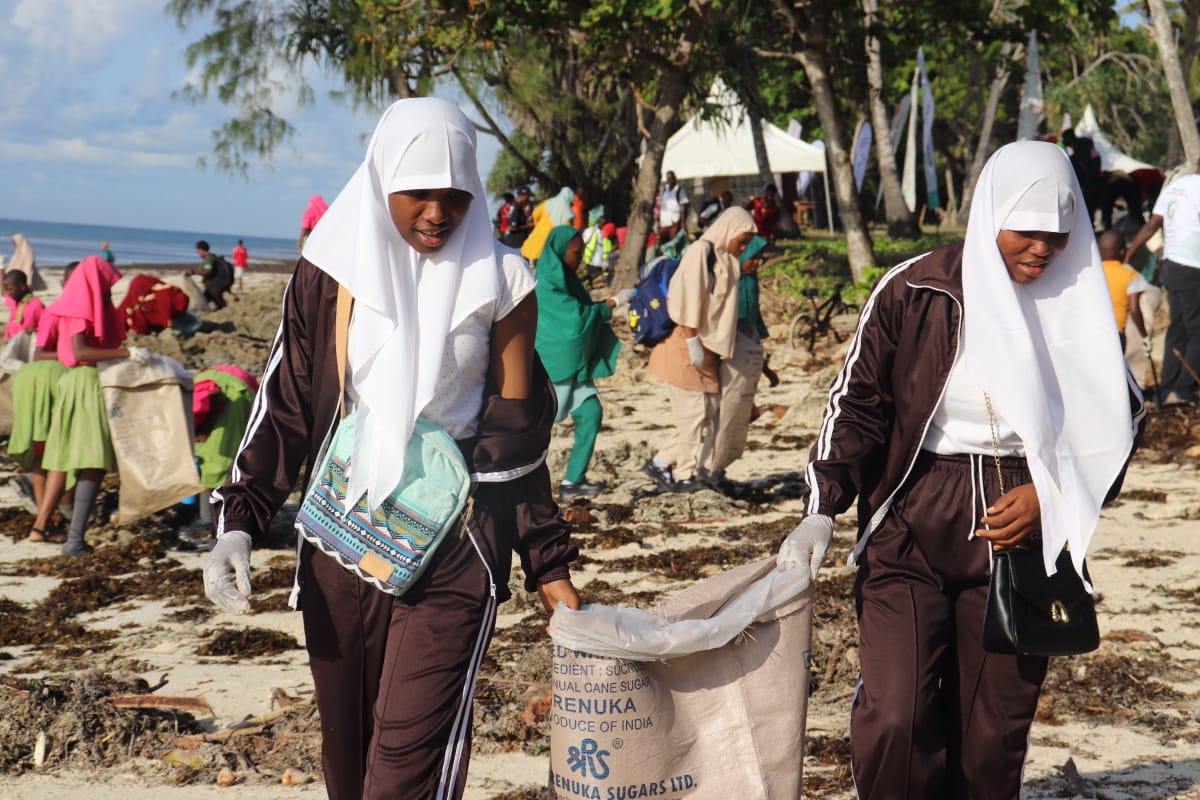 Students take part in the Diani Beach Zero Plastic Festival, as World Ocean Day is marked, in Diani, Kwale County, on June 8, 2024. (Photo: Mishi Gongo/EV)
Students take part in the Diani Beach Zero Plastic Festival, as World Ocean Day is marked, in Diani, Kwale County, on June 8, 2024. (Photo: Mishi Gongo/EV)
Dempsey Mai of the Diani Turtle Watch said turtles are endangered, yet they play an important role in stabilising the ecosystem.
"Turtles have a double tragedy because they are poached for meals in some cultures and some drown from illness, nets and plastics. The green turtles feed on sea moles and seaweed, cleaning up the sea and making it better for other fish," Mai explained.
She also noted that some fish and turtles have also begun to migrate in search of cleaner and safer breeding grounds.
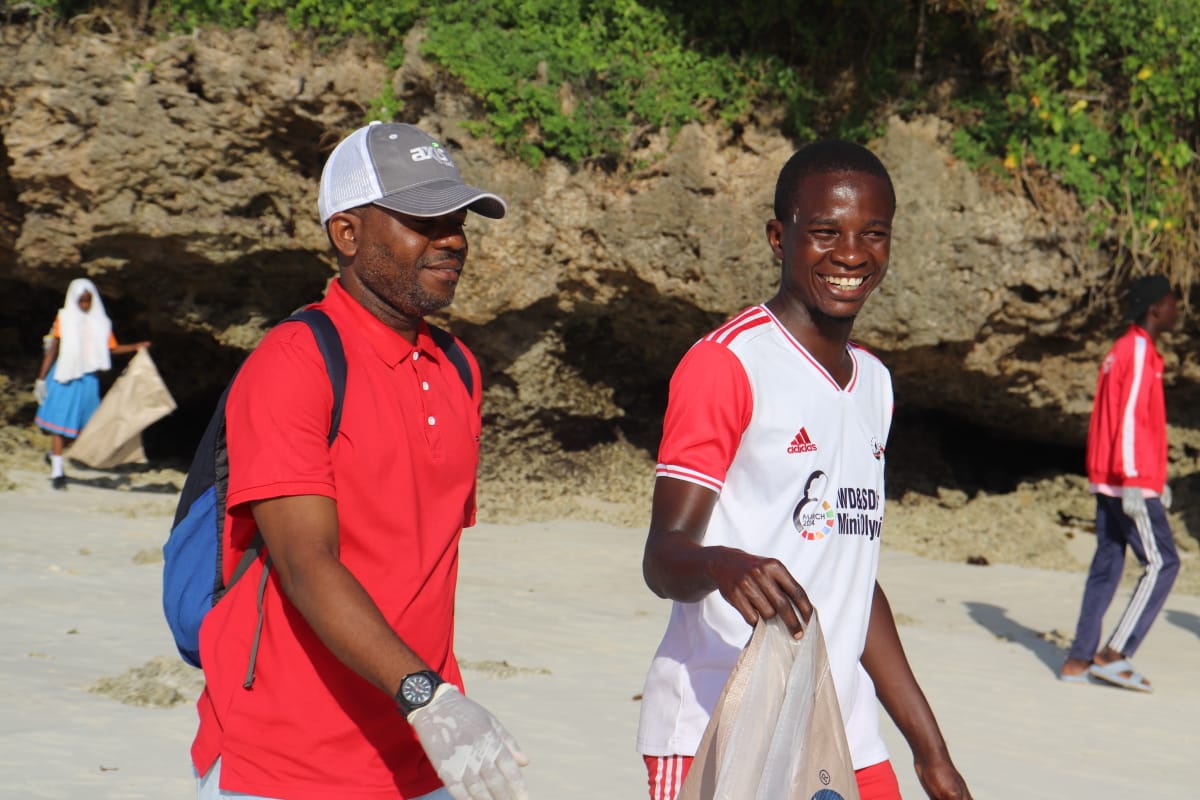 Members of the public take part in the Diani Beach Zero Plastic Festival, as World Ocean Day is marked, in Diani, Kwale County, on June 8, 2024. (Photo: Mishi Gongo/EV)
Members of the public take part in the Diani Beach Zero Plastic Festival, as World Ocean Day is marked, in Diani, Kwale County, on June 8, 2024. (Photo: Mishi Gongo/EV)
Diani resident Amina Awadh said the initiative allowed schoolchildren to learn about conservation, so more cleaning exercises should be conducted.
"We should not stop with the ocean; we need to take these cleaning activities to our villages as well to ensure we have a clean environment," she said.
According to the experts, plastics disposed of in the ocean find their way to human beings when they consume fish that have swallowed them, causing health problems.
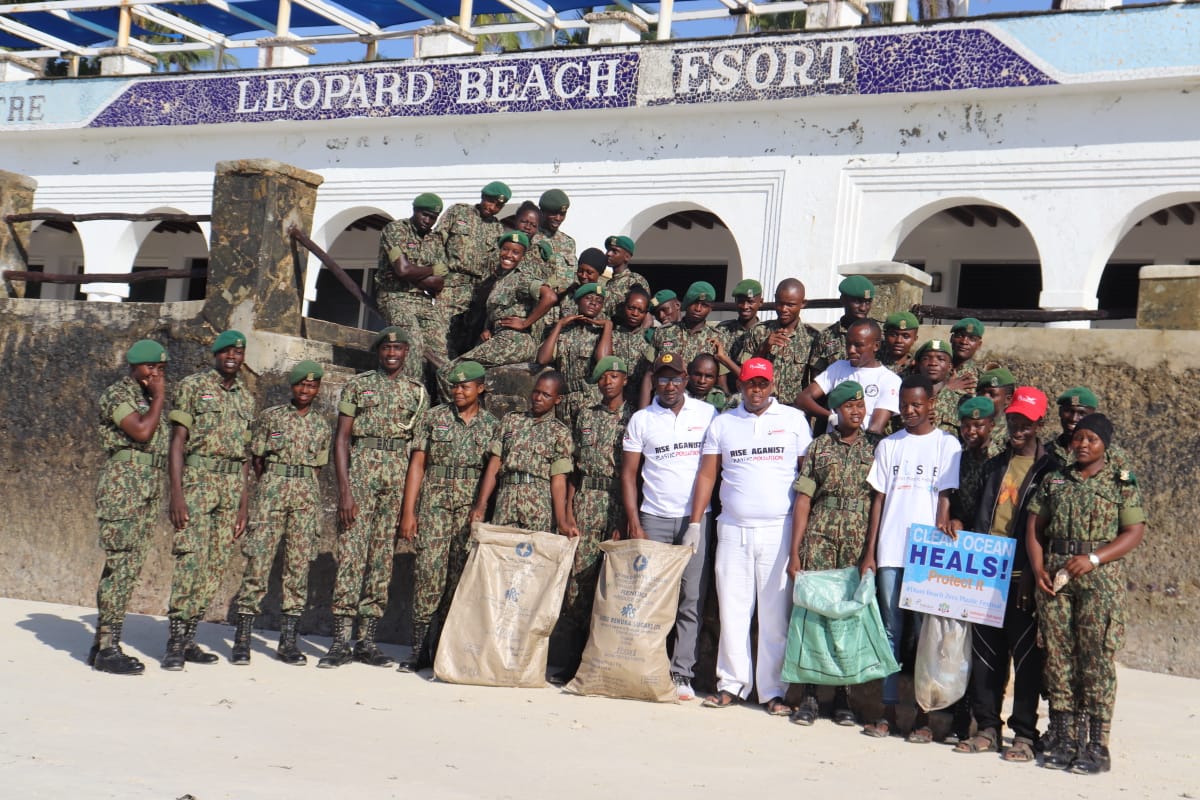 Participants in the Diani Beach Zero Plastic Festival, among them the National Youth Service (NYS), pose for a picture in Diani, Kwale County, on June 8, 2024, as World Ocean Day is marked. (Photo: Mishi Gongo/EV)
Participants in the Diani Beach Zero Plastic Festival, among them the National Youth Service (NYS), pose for a picture in Diani, Kwale County, on June 8, 2024, as World Ocean Day is marked. (Photo: Mishi Gongo/EV)
Juma Said, one of the event organisers, said the plastic collected in today's activity will be recycled to make other products, such as chairs.
"We are asking our county government to place trash containers at the beaches to prevent littering. We also want the county to open a plastic recycling plant for the collected harmful materials," he said.
Radhia Rajab said many people recycle plastic, but their impact is not felt because they do it on a small scale.
"The government should support these people with machinery to ensure all trash collected from Kwale is turned into useful products," she said.
Top Stories Today
